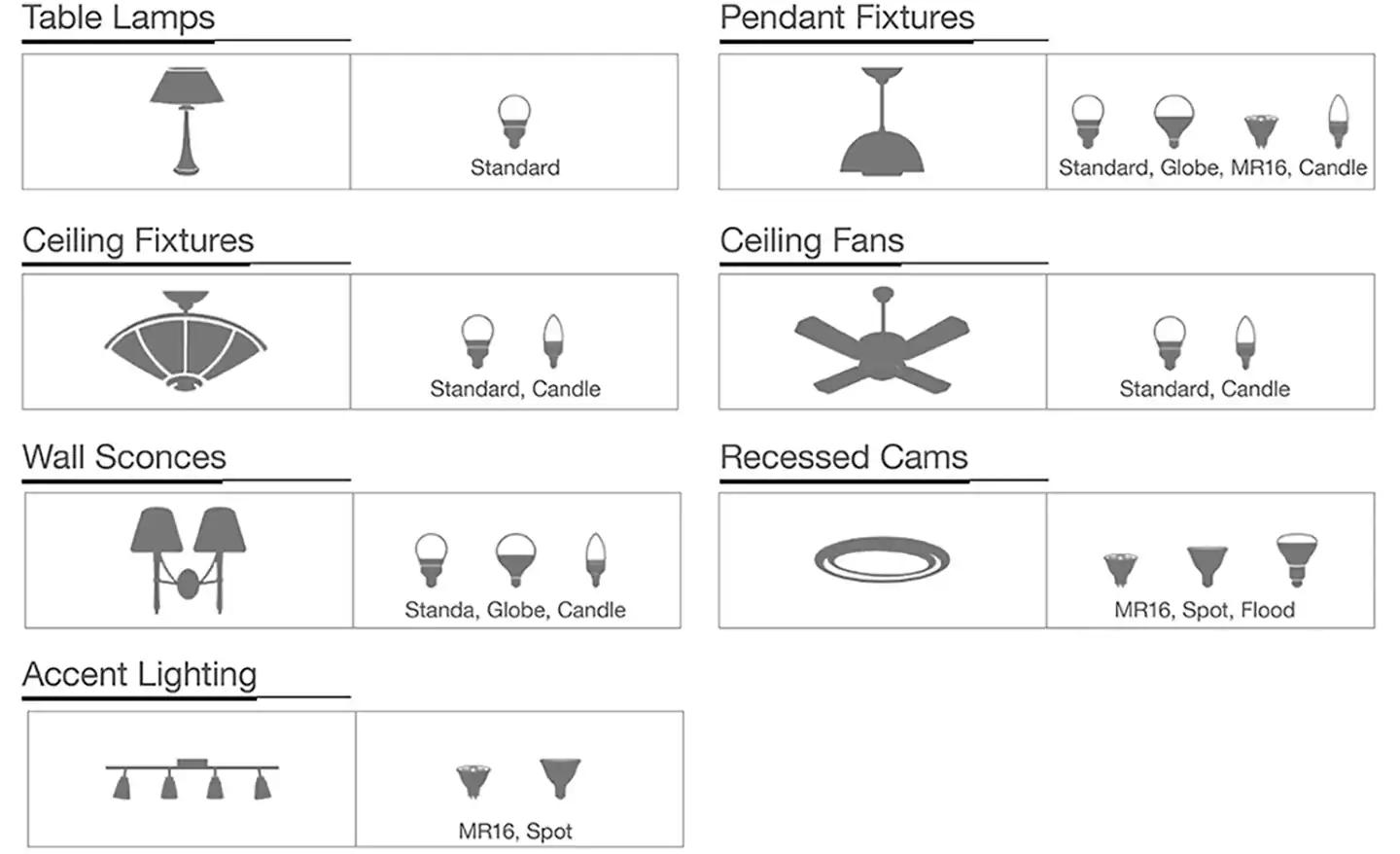Light bulbs are an essential part of our daily lives, providing us with the illumination we need in our homes, offices, and public spaces. With advancements in technology, there are now various types of light bulbs available in the market, each with its own set of advantages and disadvantages. One such type is the smoked light bulb, which can sometimes emit smoke and have a burnt smell. In this article, we will explore the reasons behind a smoked light bulb and provide solutions to address this issue.
Understanding the Different Types of Light Bulbs
Before delving into the issue of a smoked light bulb, let's first understand the different types of light bulbs commonly used today. The two most popular types are CFL (Compact Fluorescent Lamp) and LED (Light-Emitting Diode) bulbs.
CFL Bulbs:
CFL bulbs are energy-efficient alternatives to traditional incandescent bulbs. They utilize compact fluorescent technology, which allows them to consume 90% less energy than incandescent bulbs. However, due to the production of light through heat, CFL bulbs can become hot to the touch.
LED Bulbs:
LED bulbs are even more energy-efficient than CFL bulbs, as they use 75% less energy. They produce light through light-emitting diodes, which are electrical conductors, resulting in bulbs that remain cool to the touch.
It's important to note that different types of light bulbs serve different purposes. Before installing a light bulb, it's essential to check the requirements of the lamp or socket to ensure the best possible lighting for the specific area.
Why Would a Fluorescent Light Bulb Smoke?
Now that we have a basic understanding of different light bulb types, let's address the issue of a smoked light bulb. The scenario you described, with smoke emanating from the bulb and a burnt smell, is a cause for concern. There are a few potential reasons why this could be happening:
- Faulty Bulb: The first possibility is that the bulb itself is defective or damaged. This could be due to a manufacturing defect or mishandling during shipping or installation. In such cases, it's recommended to stop using the bulb immediately and contact the manufacturer or retailer for a replacement.
- Incorrect Wattage: Another reason for a smoked light bulb could be using a bulb with an incorrect wattage rating. If the bulb wattage is higher than what the fixture or socket can handle, it can cause overheating and potentially lead to smoke and a burnt smell. Always ensure that you are using bulbs with the correct wattage as specified by the manufacturer.
- Wiring Issues: Faulty wiring in the fixture or socket can also be a contributing factor to a smoked light bulb. If the wiring is damaged or not properly connected, it can create a short circuit or overload, resulting in heat buildup and smoke. In this case, it's advisable to consult a qualified electrician to inspect and repair the wiring.
It's important to address the issue of a smoked light bulb promptly to prevent any potential hazards or further damage to the electrical system.
What to Do If You Encounter a Smoked Light Bulb?
If you encounter a smoked light bulb, here are some steps you can take to address the issue:
- Safety First: Ensure your safety by switching off the power to the fixture or socket where the smoked bulb is installed. This will help prevent any electrical accidents or further damage.
- Remove the Bulb: Carefully remove the smoked bulb from the fixture, using protective gloves if necessary. Inspect the bulb for any visible signs of damage, such as burnt prongs or a blackened base.
- Check Wattage and Compatibility: Verify that you are using a bulb with the correct wattage as specified by the manufacturer. Ensure that the bulb is compatible with the fixture or socket.
- Replace the Bulb: If the smoked bulb is determined to be faulty or damaged, replace it with a new one of the same type and wattage. Follow the manufacturer's instructions for installation.
- Seek Professional Help: If the issue persists or you suspect wiring problems, it's advisable to seek the assistance of a qualified electrician. They will be able to inspect the fixture, socket, and wiring for any faults and provide appropriate solutions.
Remember, electrical issues should always be handled with caution and by professionals if necessary. Prioritize your safety and seek expert advice when dealing with smoked light bulbs or any other electrical problems.
In conclusion, a smoked light bulb can be a cause for concern and should be addressed promptly to prevent potential hazards. Understanding the different types of light bulbs and their specific requirements is essential for choosing the right bulb for your needs. If you encounter a smoked light bulb, follow the necessary steps to ensure your safety and address the issue appropriately. Remember, when in doubt, consult a professional electrician to diagnose and resolve the problem effectively.
If you want to know other articles similar to Smoked light bulb: understanding the issue & finding solutions you can visit the Lighting category.


Related Articles